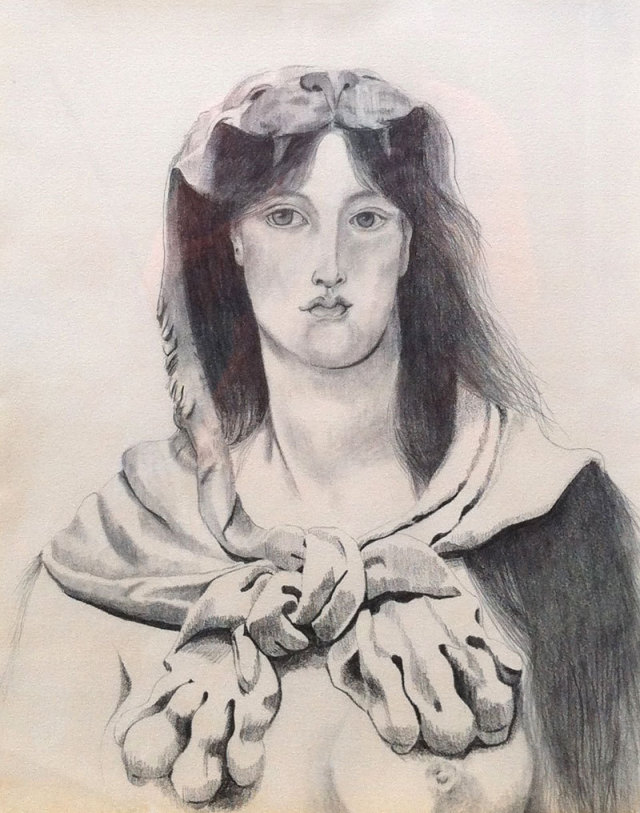Review: Venus in Fur

Venus Leo (after Rossetti), a drawing by local artist Elizabeth Malaska. The piece is part of an exhibition of Malaska's work at the Gerding Theatre in conjunction with Venus in Fur.
In the first scene of Venus in Fur, Portland Center Stage's new production, Thomas (David Barlow), the director/playwright of a theatrical adaptation of Leopold von Sacher-Masoch's scandalizing 1870 novella Venus in Furs (Masoch, masochism—get it?), paces around a dingy New York room at the end of a long day of unsatisfying auditions, complaining to his fiancée over the phone about the lack of qualified applicants. The scene, while establishing that Thomas is pedantic (his diatribe leaves no room for reply) and has issues with women (the female auditioners' sexuality seems to have offended him personally), is much too long.
That's the only bad thing to be said about Venus in Fur.
This taut, psychological play, which was nominated for a Tony last year, gets good—and then only gets better—with the entrance of Vanda (Ginny Myers Lee), an actor who seems, on first impression, just like the ones Thomas has been complaining about: attractive and entitled. She is, to boot, a hot mess, soaking wet with rain, prattling on with excuses and a trace of Valspeak, and generally making a fool of herself. But once Vanda has somehow convinced Thomas to let her try out, she astonishes not only him, but us, by utterly transforming into her haughtily erotic character. As the audition goes on—much longer than Thomas has told his fiancée it would—and the distance between director and actor, self and role, submission and domination, and, finally, reality and fantasy begins to close, we come to understand that Vanda isn’t (or at least isn't only) the ditz she first appeared as; indeed, she isn't a proper character at all, but a representation of ideas that fascinatingly, maddeningly, ceaselessly changes faces. Is she an airheaded bimbo? A manipulative schemer? Or something more abstract: sexuality draped in animality, risen from the depths of our subconscious upon a seashell?
In any case, the role requires quite an actor. Lee fits the bill, playing each of the many Vandas (we count at least four) in a distinct and tuneful key (and getting plenty of laughs with her exaggerated, comedic performance at the play’s start). Meanwhile, Barlow, as Thomas, ably holds up his end of the two-man show, and director Nancy Keystone does a fine job of bringing New York playwright David Ives's script to the stage, particularly in her well-considered blocking.
Ultimately, however, it is the richness of PCS’s source material that makes Venus great. As Ives uses Vonda to toy with Thomas, so he uses all the devices in his writers' toolbox to toy with the audience, cleverly forcing us to reexamine our notions of power, gender, and sex. These examinations aren't ones that produce answers immediately. Like a thorny internal conflict, Venus leaves viewers puzzling over the questions it asks, passing them back and forth among id, ego, and superego long after final bows. What more can you ask of a work of art?




